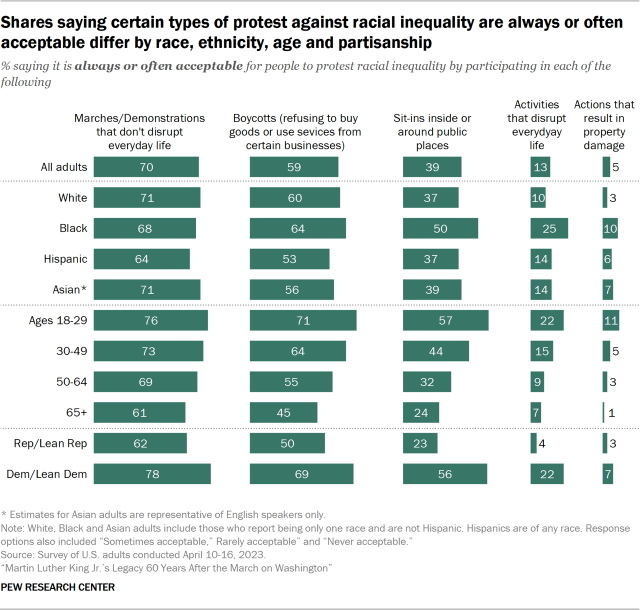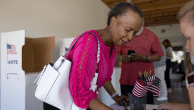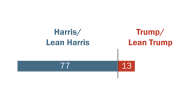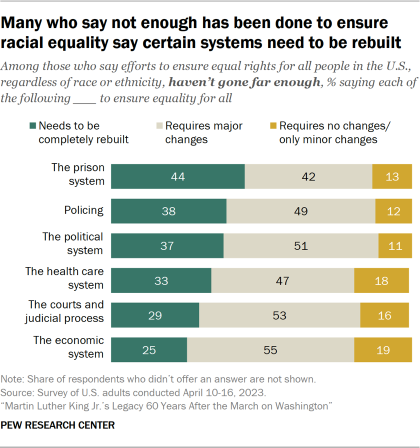
We asked people who say efforts to ensure equal rights haven’t gone far enough how much they think each of the following needs to change to ensure equality for all people, regardless of race and ethnicity:
- The prison system
- Policing
- The political system
- The health care system
- The courts and judicial process
- The economic system
Within that group of respondents, majorities of 80% or more say each of these requires at least major changes, with shares ranging from 25% to 44% saying they need to be completely rebuilt.
On nearly every item, the shares saying the system needs to be completely rebuilt to ensure racial equality (among those who say efforts to ensure equality haven’t gone far enough) vary by:
Race and ethnicity: Black Americans are more likely than White, Hispanic and Asian Americans to say most of these systems need to be completely rebuilt.
Age: Adults ages 18 to 29 are more likely than those 30 and older to say most of these systems need to be completely rebuilt. On most items, there are also differences between those ages 30 to 49 and those 50 and older, with the younger group more likely to say the system in question needs to be rebuilt.
Partisanship: Democrats and those who lean Democratic are more likely than Republicans and Republican leaners to say several of these systems need to be completely rebuilt. In turn, Republicans are more likely than Democrats to say no changes or only minor changes are required (though majorities of Democrats and Republicans who say efforts to ensure equality haven’t gone far enough say each of these systems requires at least major changes).
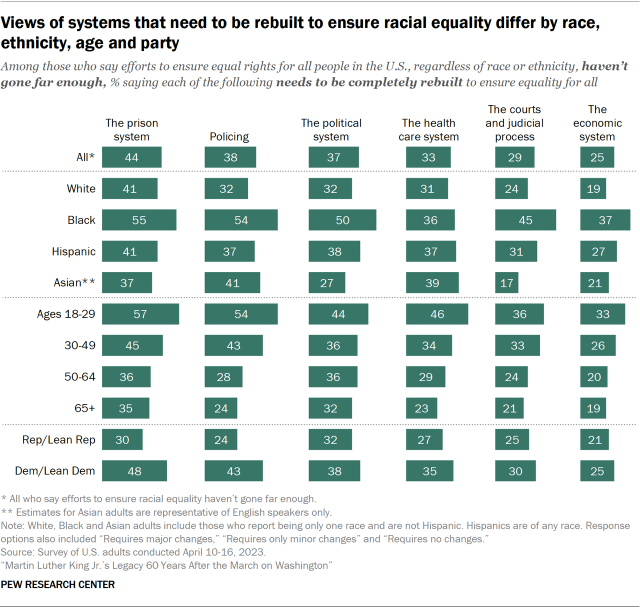
Protests against racial inequality
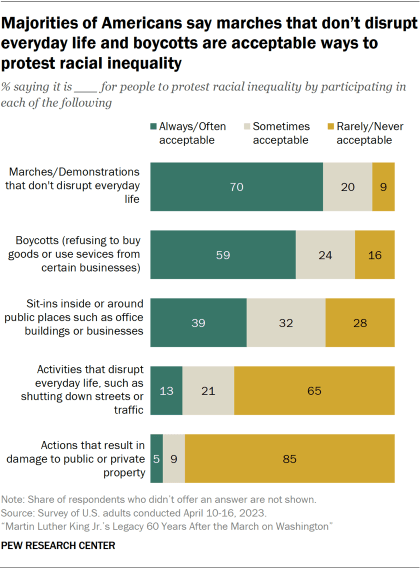
We also asked Americans about their views on some activities aimed at protesting racial inequality.
Majorities say the following are always or often acceptable:
- Marches or demonstrations that don’t disrupt everyday life (70%)
- Boycotts, or refusing to buy goods or use services from certain businesses (59%)
In turn, most see these activities as rarely or never acceptable:
- Actions that result in damage to public or private property (85%)
- Activities that disrupt everyday life (65%)
On some of these, the shares saying the activity is acceptable differ by:
Race and ethnicity: Black Americans are more likely than White, Hispanic and Asian Americans to say sit-ins and activities that disrupt everyday life are always or often acceptable. Black, Asian and Hispanic Americans are more likely than White Americans to say the same about actions that cause damage to public or private property, even though small shares of each group say this.
By age: Adults ages 18 to 29 are more likely than those 30 and older to see most types of protests, including those that result in property damage, as always or often acceptable.
By partisanship: Democrats are more likely than Republicans to say each of these forms of protest is always or often acceptable.
People who say efforts to ensure racial equality haven’t gone far enough are more likely than those who say these efforts have been about right or have gone too far to say most of these protest activities are always or often acceptable.
